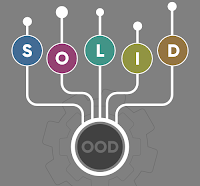
What is NodeJS? NodeJS is an open source server environment and free. NodeJS runs on various platforms( Windows, Linux, Unix, Mac OS X ). NodeJS developed by Ryan Dahl. NodeJS is a platform built on chrome's JavaScript run-time for easily building fast and scalable network applications. NodeJS uses JavaScript on the server, an event-driven, non-blocking I/O model that makes it lightweight and efficient, perfect for data-intensive real-time applications that run across distributed devices. NodeJS runs the V8 JavaScript engine, the core of Google Chrome, outside of the browser, single threaded, non-blocking, asynchronously programming, which is very memory efficient. This allows NodeJS to be very performant. NodeJS uses asynchronous programming. NodeJS eliminates the waiting, and simply continues with the next request. NodeJS comes with several JavaScript libraries that help basic programming. An Example NodeJS Application, What NodeJS can do? can ge...

